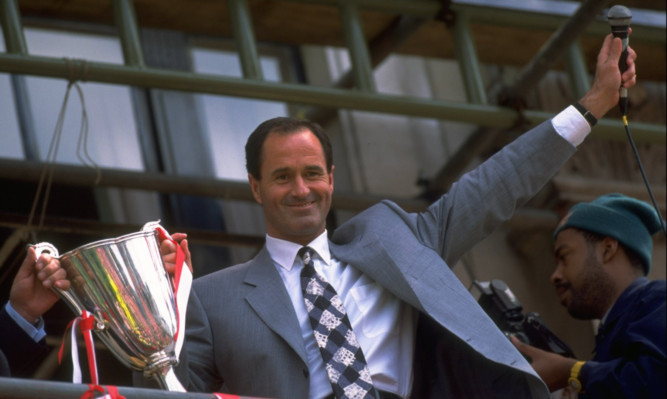
Despite Sir Alex Ferguson’s retiral, Scottish managers remain to the fore in England.
If Ian Holloway fails to steer Crystal Palace to the Premier League in the Championship Play-off Final a week tomorrow, Scots will continue to outnumber Englishmen in charge at the highest level across the border. Unless, of course, Manchester City and Everton do the unexpected and appoint English managers to replace Roberto Mancini and David Moyes.
Incredibly, it’s 22 years since the English champions had an English manager Howard Wilkinson at Leeds United.
Since then the title winners have been led by Scots, French, Italians and Portuguese. Ferguson’s 13 titles at Old Trafford will never be equalled, let alone bettered.
All of which means only four Englishmen have managed in the Champions League since its inception in 1992 Sir Bobby Robson, Ray Harford, Harry Redknapp and Steve McClaren, at Dutch club FC Twente.
Balance this against the Tartan throng of Ferguson, Moyes, Kenny Dalglish, Walter Smith, Alex McLeish, Ally McCoist, Gordon Strachan and Stuart Baxter experiencing the same and you’ll see the gap.
At present there are 11 Scots managing in England.
When you consider down the years the influence of Sir Matt Busby and Bill Shankly, it’s no wonder having a Scottish manager has remained so fashionable in England.
George Graham (above) will go down in history as one of the great Arsenal managers of all time, leading them to two titles, two League Cups, one FA Cup and one UEFA Cup.
During his reign at Highbury, I asked him why Scottish managers were so successful in England.
His theory was Scots not only made good football bosses, but leading politicians and heads of industry because of an inner strength to prove the best in whatever walk of life they undertook.
“We always want to prove we are the best, especially when we come to work in England,” was Graham’s belief.
It’s just a pity that mindset doesn’t apply at the start of playing careers!
At a time when there are so many top-quality Scottish football managers, it’s unbelievable how far down the rankings the Scotland international side has slipped in recent years.
It’s an enormous accolade being able to produce world-class managers. Now it’s time to start producing world-class players again.

Enjoy the convenience of having The Sunday Post delivered as a digital ePaper straight to your smartphone, tablet or computer.
Subscribe for only £5.49 a month and enjoy all the benefits of the printed paper as a digital replica.
Subscribe